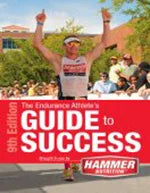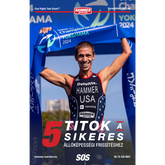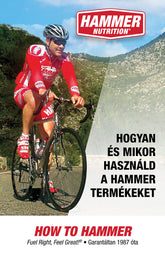Pre-competition diet
OK, this is one area, the relationship between proper nutrition and performance, that I never missed.
I'll be honest, most of the time I played sports I followed the instructions in this article. I wish I could say I did all of this consistently, but the truth is that I did it more out of habit than knowing what I was doing.
For every athlete I've worked with, this specific part of the sport was the least interesting to them... until they tried it and noticed how much their performance improved. How many times has it happened that an hour or two before the start you ate an energy bar (or more), drank a sip (or more) of a sports drink, or just ate some food?
Big mistake! Eating so close to the time of training is ineffective and only worsens your performance. In the sometimes confusing world of sports nutrition, pre-competition nutrition is arguably the biggest source of confusion, and many athletes have paid quite the price for being misinformed. But really, there are no inside secrets to pre-contest nutrition, just some wise strategies and advice.
You need to know what to eat, how much and especially when. In addition, it doesn't hurt to know how glycogen is stored, how it is emptied and refilled, and you just need to be able to use this knowledge in everyday life. This article will provide you with all the information, and I've also written some dietary recommendations that are equally suitable for training and competition.
The goal of pre-competition nutrition
Assuming that your race starts the next morning, the purpose of nutrition is to replenish your liver's glycogen stores, which your body used up during the night, while you were sleeping. Muscle glycogen, the first fuel you use as soon as your workout begins, remains intact through the night. If you ate properly after the previous workout, during regeneration, you have a large amount of muscle glycogen at your disposal, which makes up 80% of the total amount of stored glycogen. If you haven't fueled yourself with complex carbohydrates and protein after training, you can't do anything about it now; in fact, you're only hurting yourself if you try. I repeat: the glycogen stored in the liver during sleep is responsible for the correct blood sugar level; you never use a single calorie from the muscle glycogen stores. You may wake up hungry, and I'll get to that later, but your muscle glycogen stores will be fully charged, which is the first used and main source of energy. Your stomach may be saying, "I'm hungry," but your muscles are saying, "Hey, we're up for anything!".
If only the amount of glycogen stored in the liver is complete, then you need a weak pre-workout meal. Sports nutrition expert Bill Misner recommends that this meal be "an easy-to-digest, high-complex-carbohydrate meal with 200 to 400 calories and minimal fiber, simple sugars, and fat." According to Dr. Bill Misner, fat slows down digestion and has no positive effect on nutrient absorption during exercise. Also, he says, high-fiber foods before training can lead to unplanned bush squats mid- or late-competition.
Complex carbohydrates and protein
According to a study, if an athlete eats a meal containing carbohydrates and protein before training, he performs better than if he just drinks a sports drink containing several carbohydrates. All of this is contained in Sustained Enegry (with complex carbohydrates and protein), or the combination of Sustained Enegry and Hammer Gel or HEED, which is very effective and incredibly quick and easy. If you feel you need solid food, choose high-starch foods such as peeled potatoes, rice, pasta, low-fat yogurt culture, tapioca, and low-fiber cereal. At the end of the article you will find some foods that contain these products.
Keep the Three Hours or More!
Before the competition, it is not only important what you eat, but also when you eat it. According to experts Dr. Bill Misner, Dr. Michael Colgan, and Dr. David Costill, an athlete needs at least three hours to digest breakfast. After breakfast, drink 3-3.5 dl of liquid every hour until 30 minutes before the start.
3 hours gives your body enough time to fully process the food. According to Colgan, this is how long it takes for digestion and to avoid intestinal complaints. According to a study led by Costill, complex carbohydrates consumed 3-4 hours before exercise raise blood sugar levels and improve performance. But Dr. Bill Misner's argument convinced me much more.
Dr. Bill Misner's Reasonable Explanation - It's All About Timing
If you consume carbohydrates with a high glycemic index, such as simple sugars or even complex carbohydrates, you can expect the following negative effects on your performance:
#1 Rapidly rising blood sugar, which can also cause excessive insulin release, causing hypoglycemia, or abnormally low blood sugar levels.
#2 High insulin levels inhibit lipid mobilization during aerobic exercise, which means poorer fat-to-fuel conversion. Our ability to use fatty acids as energy greatly affects our performance, which is why we can continue training with some carbohydrate intake. But you definitely don't want to gamble with your energy system.
#3 This high insulin level is also the cause of the influx of blood sugar into the muscle cells, which increases the rate of carbohydrate metabolism, therefore causing rapid carbohydrate depletion.
You should finish your pre-race nutrition at least three hours before the start, as the insulin-induced blood sugar "fluctuation" due to the meal lasts for about three hours before the hormonal balance is restored. Hormonal imbalance has a negative effect on the utilization of muscle glycogen, consumed carbohydrates, and fatty acids. In other words, food consumed within three hours before the start leads to a faster depletion of muscle and liver glycogen stores and inhibits the optimal ability to release fat. Faster glycogen depletion and disruption of the primary, long-term fuel supply can impair your performance.
But I'm Hungry!
Remember what I said earlier, which is that muscle glycogen is the main fuel for the first 60-90 minutes of training, and this remains intact overnight. When you wake up in the morning, you haven't depleted your primary fuel supply, and you can't add to it by eating an hour or two before your workout. This is absolutely correct, and believe it or not, being hungry before exercising is fine and will not hinder your performance.
However, athletes who train hard often wake up hungry and feel the need to eat something before training. This is especially true for half- and full-ironman athletes who start swimming early in the morning, which can last up to an hour, and during which it is not possible to eat.
What to do? Try the following tips to solve this problem:
1. Just start training and remember that hunger is not a performance-inhibiting factor, start eating shortly after the start, as soon as you have established a comfortable rhythm. The feeling of hunger will decrease as you start training, and you will only improve your performance by following this procedure. You can safely use Sustained Enegry, Perpetuem HEED, or Hammer Gel, or a combination of these once your workout has started, but always take the right amount. For more detailed information, visit the publication
"Adequate Calorie Intake During Long-Distance Sports Events".
2. If you feel you must eat something, eat 100-200 calories 5 minutes before the start. By the time those calories are digested and your blood sugar levels are elevated, you'll be long into your workout and your glycogen depletion rate won't really have a negative impact on your performance. In this regard, a good choice is one or two Hammer Gels, or a hearty, pre-made Sustained Energy or Perpetuem drink. This strategy is especially suitable for triathletes who start in the water and do not have the opportunity to eat while doing so. Small amounts of nutritious food, such as those mentioned above, suppress hunger for a long time
feeling.
Sleeping or Eating?
Maybe you should get up at the crack of dawn just to eat something three hours before the race? My answer is NO, rest does you much more good; strengthening physiological processes take place during sleep, so do not sacrifice sleep on the altar of eating. If you're a fit athlete who has fully replenished your carbohydrate stores after each workout, you'll have enough muscle glycogen for about 60-90 minutes, which is a premium.
fuel. If you start eating shortly after the start of the race, say 10-20 minutes after the start, it will not negatively affect your performance. So, if you just start eating after the start, that's fine, it's better to start the race a little hungry. Replenishment of muscle glycogen stores is always a good idea, but don't do it at the expense of rest, and certainly not at the expense of rapidly depleting muscle glycogen stores (by eating shortly before the race).
Summary and Recommendations for Pre-Competition Nutrition
You've worked so hard during training, make sure your nutrition, nutrient supplementation, training and rest are the best they can be. Follow these pre-race nutrition steps to give your hard training the final push and get the most out of your next race.
- Eat 200-400 calories 3 hours before the race.
- Focus on complex carbohydrates, starches and a small amount of protein before the race.
- If necessary, eat a small amount of additional food (e.g. Hammer Gel) about 5 minutes before the start.
It is important to replenish your muscle glycogen stores with the right post-workout nutrition.
Any of the following suggestions are suitable for 200-400 calories :
- Three scoops of Sustained Energy
- Two scoops of Sustained Energy with one serving of Hammer Gel or one scoop of HEED
- Two to three doses of Hammer Gel, or two to three scoops of HEED enriched with one scoop of Sustained Energy.
- Two to two and a half spoons of Perpetuem
- A banana and ½-1 glass of active yogurt
- A cookie fortified with soy protein, sweetened with Hammer Gel











